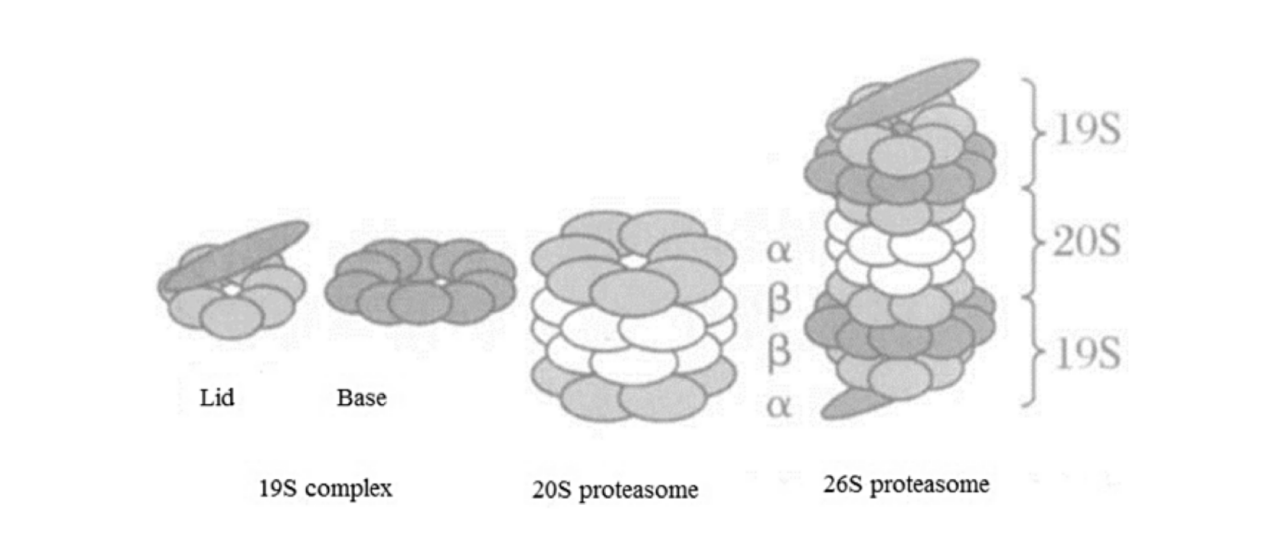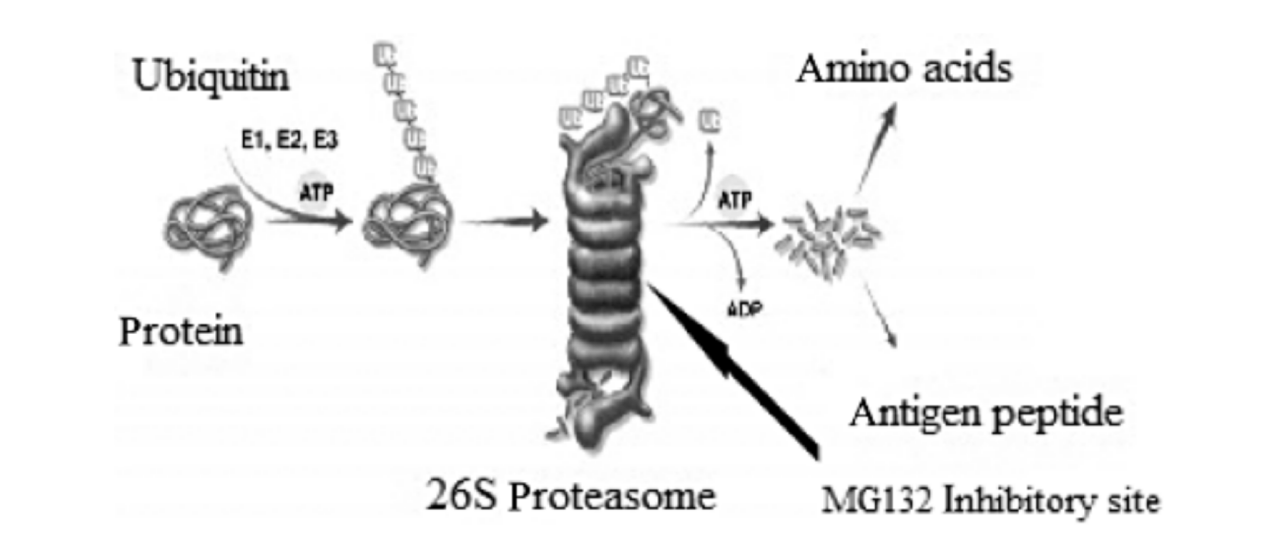 Your shopping cart is currently empty
Your shopping cart is currently empty
Article | 19 April 2024
WIKIMOLE—MG-132
By TargetMol

MG-132, catalog number: T2154, also known as Z-LLL-al or Z-Leu-Leu-Leu-CHO, is a 26S proteasome inhibitor with an IC50 of 100 nM. It exhibits cell permeability and reversibility. MG-132 is capable of inducing apoptosis.
Background
The 26S proteasome is one of the most important protein degradation systems in cells, also known as the Ubiquitin-Proteasome System (UPS). This system mainly consists of two parts: the ubiquitination system and the proteasome.
Ubiquitination system: This system involves the covalent attachment of ubiquitin molecules to target proteins, marking these proteins as targets for degradation. This process involves ubiquitin-activating enzymes and ubiquitin-conjugating enzymes, which work together to attach ubiquitin to specific proteins, forming polyubiquitin chains.
Proteasome: This system is mainly composed of 20S core particles and 19S regulatory particles that bind to them, forming a 26S complex. The 26S proteasome is the primary intracellular protease responsible for degrading proteins that have been tagged with ubiquitin. It plays a crucial role in maintaining the quality of intracellular proteins and regulating protein levels by recognizing, deconstructing, and degrading ubiquitinated proteins.

Function
The 26S proteasome maintains cellular protein homeostasis by clearing abnormal, aging, or excessive proteins. It participates in the regulation of cellular life cycles, stress responses, and metabolic regulation, among other physiological processes. MG-132, as an inhibitor of the 26S proteasome, can disrupt the normal function of this system, providing important tools and information for research in cell biology and molecular biology. Additionally, the apoptosis of cancer cells is closely related to the activity of the ubiquitin-proteasome pathway. MG132 can induce cell apoptosis through various intermediate pathways, playing a crucial role in anti-tumor therapy.

Reference
[1] Guo N, Peng Z. MG132, a proteasome inhibitor, induces apoptosis in tumor cells. Asia Pac J Clin Oncol. 2013;9(1):6-11. doi:10.1111/j.1743-7563.2012.01535.x
[2] Zhu X, Huang N, Ji Y, Sheng X, Huo J, Zhu Y, Huang M, He W, Ma J. Brusatol induces ferroptosis in oesophageal squamous cell carcinoma by repressing GSH synthesis and increasing the labile iron pool via inhibition of the NRF2 pathway. Biomed Pharmacother. 2023 Nov;167:115567. doi: 10.1016/j.biopha.2023.115567. Epub 2023 Sep 22. PMID: 37742602..
[3] Liu X, Fang Y, Lv X, et al. Deubiquitinase OTUD6A in macrophages promotes intestinal inflammation and colitis via deubiquitination of NLRP3. Cell Death Differ. 2023;30(6):1457-1471. doi:10.1038/s41418-023-01148-7
[4] Cao D, Duan L, Huang B, Xiong Y, Zhang G, Huang H. The SARS-CoV-2 papain-like protease suppresses type I interferon responses by deubiquitinating STING. Sci Signal. 2023 May 2;16(783):eadd0082. doi: 10.1126/scisignal.add0082. Epub 2023 May 2. PMID: 37130168.
Other Articles


Subscription to TargetMol News
An essential round-up of science news, opinion and analysis, delivered to your inbox every weekday.

Copyright © 2015-2025 TargetMol Chemicals Inc. All Rights Reserved.























